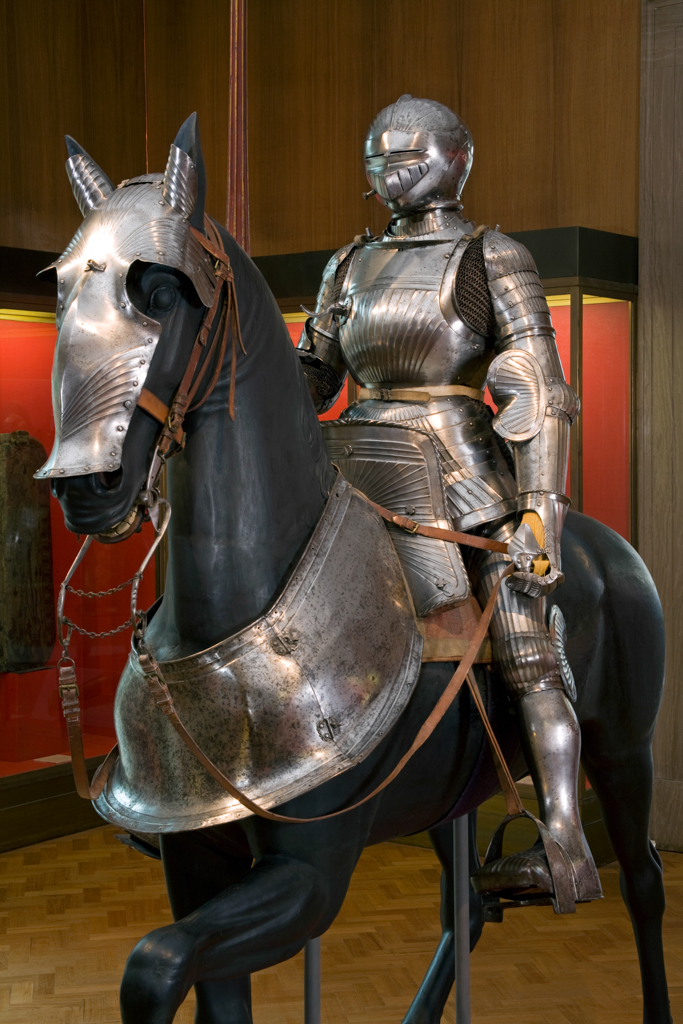Look and Think activities should take 5 -10 minutes.
Do activities might take longer depending on the task and how creative you are feeling!
Whole composite armour, decorated with fluting in the Maximilian fashion.
Early 16th century South Germany, for field or cavalry use. M.1.1A-H-1936.
Look
Look closely at the suit of armour.
Can you estimate how many separate pieces of armour there are on the knight?
Find the answer below.
Think
Watch the video below showing the horse being dressed.
This horse is wearing a bright patterned headdress and clothing called barding.
Why do you think the knight would want to stand out in a battle?
Do
The colours on the barding are from Lord Fitzwilliam’s coat of arms.
What colours would you choose to represent you and why?
Design your own special coat of arms and create a matching outfit for the horse using our printable activity sheets.

According to Vicky Avery, our Keeper of Applied Arts, there are 18 individual pieces of armour:
1 Armet (for lower face)
2 Collar
3 Breast plate (with skirt and tassets)
4 Backplate (with skirt)
5- 6 A pair of spaulders (for shoulders)
7- 8 A pair of vembraces (for forearms)
9- 10 A pair of gauntlets
11- 12 A pair of cuisses (for thighs)
13- 14 A pair of polyens [or genouillere] (for knees)
15- 16 A pair of greaves (for lower legs)
17- 18 A pair of sabatons (for feet)
You can find out about how armour was made in our Armour Fact Sheet.
Although its various parts were not originally made to go together, this imposing ensemble illustrates excellently the kind of ‘panoply’ produced in the last great period of European armour manufacture.
A suit of armour was not only intended to protect its wearer from missiles, swords or hammer blows – although the kind of steel plate manufactured in Italy and Germany in the 16th century did this job admirably. Armour such as this drew attention to one’s social status, one’s fashion consciousness and, by virtue of its great cost, one’s wealth. This was never more true than in Germany in the 16th century when full armour was worn at political meetings, weddings and civic ceremonies.
Download this Look Think Do as a PDF or Word document.